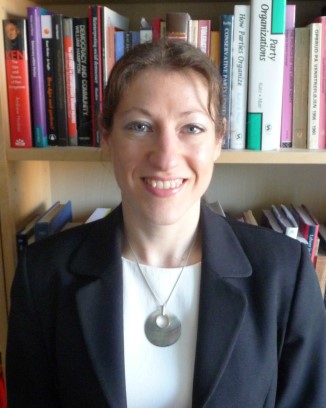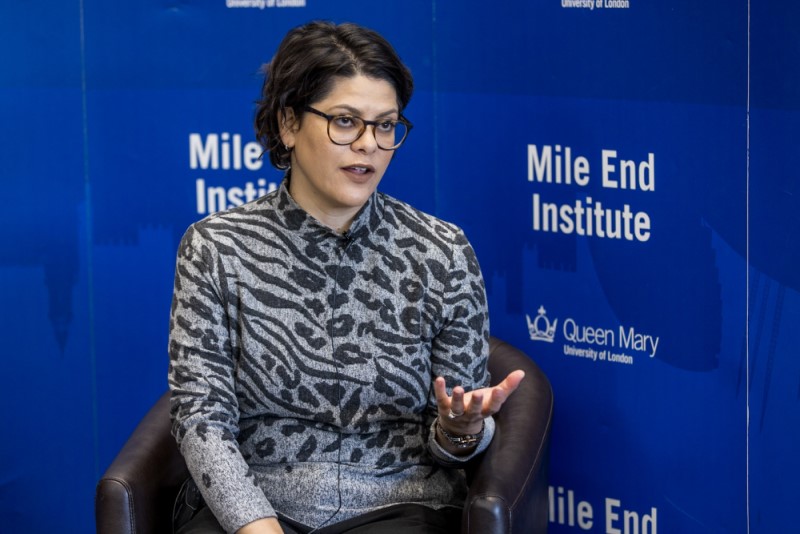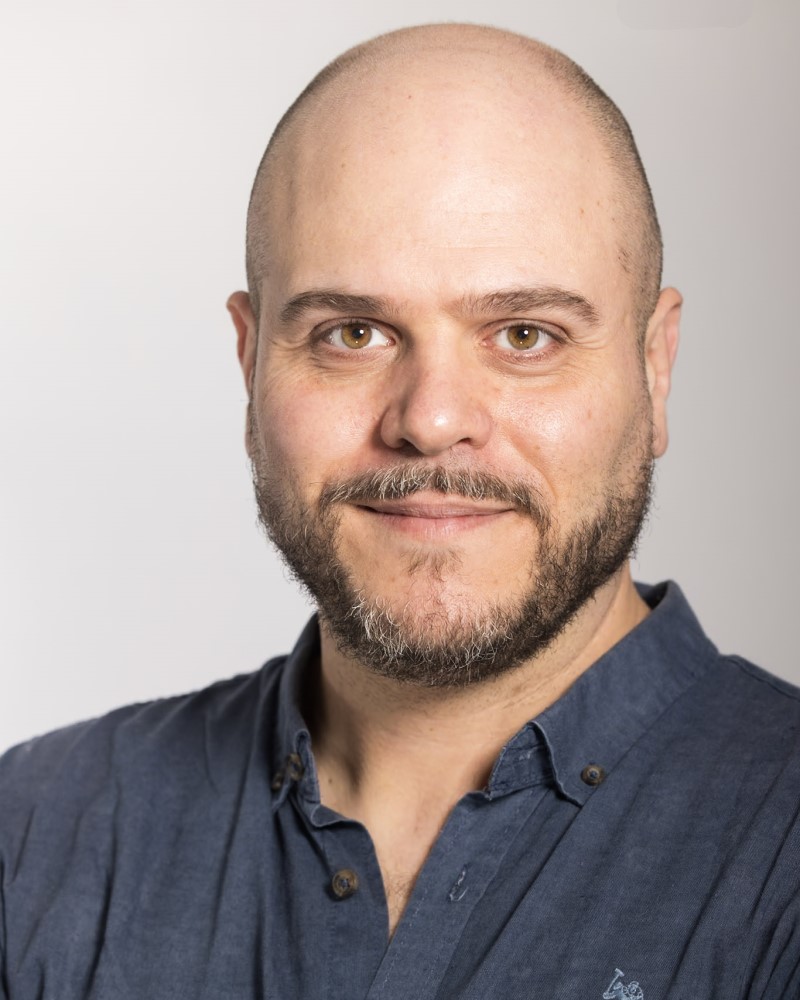Gender and sexuality
Prof Rainbow Murray
 Rainbow is Professor of Politics and an expert on representation, political institutions, gender and diversity, with particular expertise in French and British politics. Her primary research interests lie in political representation, gender and politics, candidate selection, French and comparative politics, political parties, parliaments and elections.
Rainbow is Professor of Politics and an expert on representation, political institutions, gender and diversity, with particular expertise in French and British politics. Her primary research interests lie in political representation, gender and politics, candidate selection, French and comparative politics, political parties, parliaments and elections.
She is currently Principal Investigator on the €2m Horizon Europe-funded MENSREP project, a comparative study across the UK, US, France, and Norway which will investigate the representation of men in political bodies.
Prof Sophie Harman
 Sophie is Professor of International Politics with a specific interest in global health, African agency, film and visual methods, and gender politics. She is author of eight books including Sick of It: The Global Fight for Women's Health.
Sophie is Professor of International Politics with a specific interest in global health, African agency, film and visual methods, and gender politics. She is author of eight books including Sick of It: The Global Fight for Women's Health.
Sophie has expertise on: global health governance; the politics of COVID-19; the 2014/15 Ebola outbreak; HIV/AIDS; film-making as method; African agency and the Tanzanian state, and women and gender in global health. Sophie’s research draws on her extensive fieldwork experience in Kenya, Tanzania, Uganda, Sierra Leone, Zambia, and the global health and international political economy hubs of Geneva, Washington DC and New York.
- Full profile
- Email: s.harman@qmul.ac.uk
Professor Kimberly Hutchings
 Kimberly Hutchings is Professor of Politics and International Relations. Her publications include Kant, Critique and Politics (1996); International Political Theory (1998); Hegel and Feminist Philosophy (2003); Time and World Politics (2008); Global Ethics: an introduction (2nd edition, 2018); Violence and Political Theory (with Elizabeth Frazer) (2020); and Women’s International Thought: towards a new canon (Co-Editor with Patricia Owens, Katharina Rietzler and Sarah Dunstan) (2022). In 2023 she was awarded the Isaiah Berlin prize for an outstanding lifetime professional contribution to Political Studies.
Kimberly Hutchings is Professor of Politics and International Relations. Her publications include Kant, Critique and Politics (1996); International Political Theory (1998); Hegel and Feminist Philosophy (2003); Time and World Politics (2008); Global Ethics: an introduction (2nd edition, 2018); Violence and Political Theory (with Elizabeth Frazer) (2020); and Women’s International Thought: towards a new canon (Co-Editor with Patricia Owens, Katharina Rietzler and Sarah Dunstan) (2022). In 2023 she was awarded the Isaiah Berlin prize for an outstanding lifetime professional contribution to Political Studies.
Kimberly works in the area of political and international theory and philosophy. Her recent work has focused on international ethics, in particular the ethics of war and pacifism; concepts of politics and violence in the work of political thinkers; women in the history of international political thought; feminist and postcolonial interpretations of Hegel’s ethical and political thought.
Dr Sofia Collignon
 Sofia is the Director of the Mile End Institute and an expert in the study of candidates, elections, parties, and gendered violence against political elites. Her research concentrates on the experience of candidates standing for election and the interaction between elite politics and public opinion.
Sofia is the Director of the Mile End Institute and an expert in the study of candidates, elections, parties, and gendered violence against political elites. Her research concentrates on the experience of candidates standing for election and the interaction between elite politics and public opinion.
Sofia advises national and international governments and non-governmental organisations on key policy and delivery issues, especially related to abuse, harassment and intimidation in public life. Her work has been covered by international media outlets including The Atlantic, The Washington Monthly, The Guardian, Sky News, the BBC, and CNN.
Dr Yunyun Zhou
 Yunyun is a Lecturer in Politics and Gender. She is a political sociologist with expertise in gender and authoritarianism, representation, political institution, nationalism, and the politics of affects.
Yunyun is a Lecturer in Politics and Gender. She is a political sociologist with expertise in gender and authoritarianism, representation, political institution, nationalism, and the politics of affects.
Yunyun has expertise in topics including gender lobbying and legislation, substantive political representation, institutional change, state feminism, and authoritarianism, particularly in East Asia and China.
Dr Alexander Stoffel
 Alex is a Lecturer in International Politics and author of Eros and Empire: The Transnational Struggle for Sexual Freedom in the United States.
Alex is a Lecturer in International Politics and author of Eros and Empire: The Transnational Struggle for Sexual Freedom in the United States.
Alex's research interests include queer, gender, and sexuality studies, International Relations theory, social movement history, Marxist theory, global historical sociology, intellectual history, affect theory, psychoanalysis and qualitative methodology.
Dr Diego de Merich
 Diego is a Senior Lecturer in Politics and International Relations. Diego’s research interests include the ethics and politics of international development; the feminist ethics of care; human empathy and affect in moral theory; intersectionality and equalities mainstreaming practices around the world.
Diego is a Senior Lecturer in Politics and International Relations. Diego’s research interests include the ethics and politics of international development; the feminist ethics of care; human empathy and affect in moral theory; intersectionality and equalities mainstreaming practices around the world.
Recently his work as part of a team exploring equalities mainstreaming internationally has led him to field research across the devolved UK powers; to Sweden, India and South Africa (2017), in order to assess the possibilities for intersectional approaches to traditional gender mainstreaming policies.
Dr Paul Kirby
 Paul is a Reader in International Politics and a Fellow of Queen Mary's Institute for the Humanities and Social Sciences. He is author of Governing the Feminist Peace: The Vitality and Failure of the Women, Peace and Security Agenda (with Laura J. Shepherd) and co-editor of New Directions in Women, Peace and Security (with Soumita Basu and Laura Shepherd).
Paul is a Reader in International Politics and a Fellow of Queen Mary's Institute for the Humanities and Social Sciences. He is author of Governing the Feminist Peace: The Vitality and Failure of the Women, Peace and Security Agenda (with Laura J. Shepherd) and co-editor of New Directions in Women, Peace and Security (with Soumita Basu and Laura Shepherd).
Paul's research expertise includes global gender governance (particularly the Women, Peace and Security agenda and humanitarian, development and security interventions targeting ‘masculinity’), statecraft, pop culture, critical war studies, and IR theory.
- Full profile
- Email: p.kirby@qmul.ac.uk
Dr Niharika Pandit
 Niharika is a Lecturer in Sociology. Niharika is a feminist theorist interested in questions of gender, racialisation, post/coloniality, everyday politics of living and epistemic and political potentialities of theorising from the Global South.
Niharika is a Lecturer in Sociology. Niharika is a feminist theorist interested in questions of gender, racialisation, post/coloniality, everyday politics of living and epistemic and political potentialities of theorising from the Global South.
Niharika is currently working on her first book titled On the Politics of Living: Gender, Coloniality and Occupation in Kashmir, which is an anticolonial feminist enquiry into everyday politics of living under occupation in the Kashmir valley.
- Full profile
- Email: n.pandit@qmul.ac.uk
Dr Joe Strong
 Joe is a Leverhulme Early Career Fellow with a specific interest in global health. His research centres around sexual and reproductive health, rights, and justice and the role of gender, power, and masculinities. His fellowship focuses on the role of data and evidence production in global health governance.
Joe is a Leverhulme Early Career Fellow with a specific interest in global health. His research centres around sexual and reproductive health, rights, and justice and the role of gender, power, and masculinities. His fellowship focuses on the role of data and evidence production in global health governance.
He has worked across global contexts including the USA, Poland, Ghana, Ethiopia, Malawi, Zambia, Bangladesh and with diverse populations including young people and LGBTQ+ people. His research activism has centred around improving access to abortion in Europe.